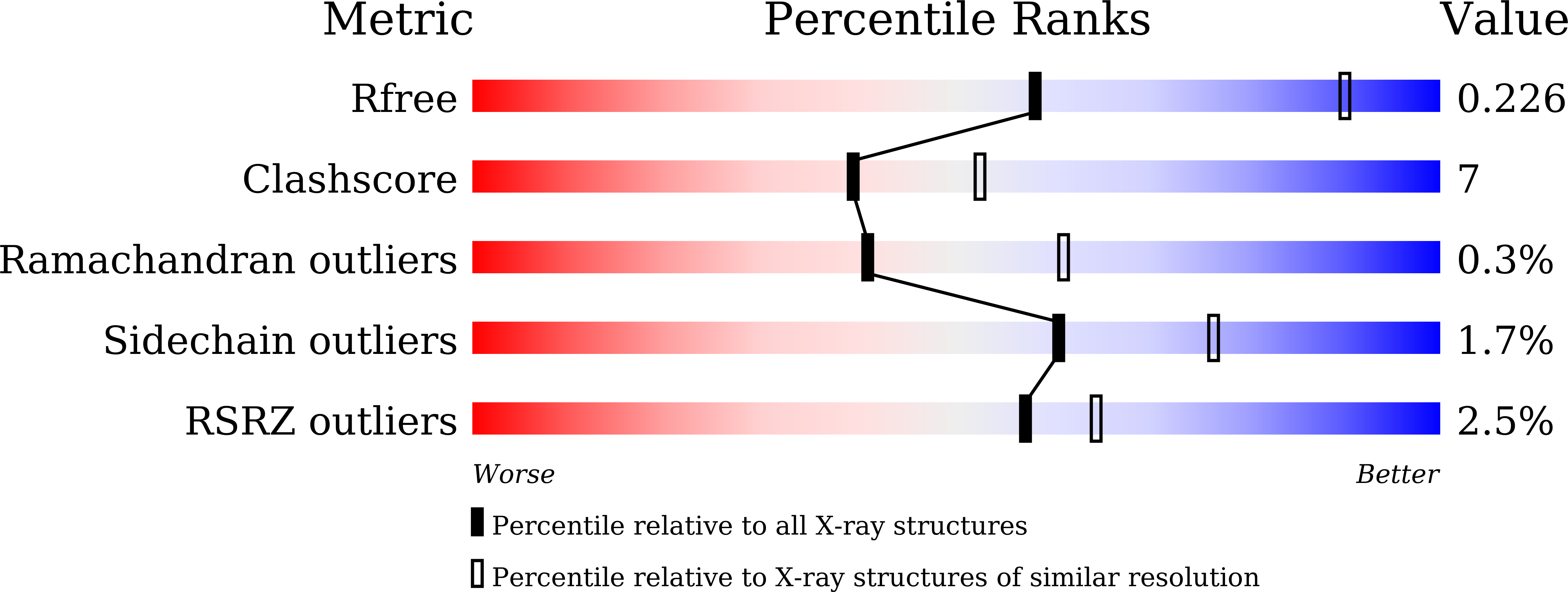Molecular Basis of Substrate Specific Acetylation by N-Terminal Acetyltransferase NatB
Hong, H., Cai, Y., Zhang, S., Ding, H., Wang, H., Han, A.(2017) Structure 25: 641-649.e3
- PubMed: 28380339
- DOI: https://doi.org/10.1016/j.str.2017.03.003
- Primary Citation of Related Structures:
5K04, 5K18 - PubMed Abstract:
The NatB N-terminal acetyltransferase specifically acetylates the N-terminal group of substrate protein peptides starting with Met-Asp/Glu/Asn/Gln. How NatB recognizes and acetylates these substrates remains unknown. Here, we report crystal structures of a NatB holoenzyme from Candida albicans in the presence of its co-factor CoA and substrate peptides. The auxiliary subunit Naa25 of NatB forms a horseshoe-like deck to hold specifically its catalytic subunit Naa20. The first two amino acids Met and Asp of a substrate peptide mediate the major interactions with the active site in the Naa20 subunit. The hydrogen bonds between the substrate Asp and pocket residues of Naa20 are essential to determine the NatB substrate specificity. Moreover, a hydrogen bond between the amino group of the substrate Met and a carbonyl group in the Naa20 active site directly anchors the substrate toward acetyl-CoA. Together, these structures define a unique molecular mechanism of specific N-terminal acetylation acted by NatB.
Organizational Affiliation:
State Key Laboratory for Cellular Stress Biology, Department of Biomedical Sciences, School of Life Sciences, Xiamen University, Xiang'an, Xiamen 361102, China.

















